
Is Norway Expensive To Visit? Travel Costs & Budgets For This Year
Wondering how much does it cost to visit Norway? Then you’re in the right place because we’ll be breaking down the cost of trips to Norway in this guide! After several trips to the country and being able to visit quite a few cities, we highlight our actual costs for visiting Norway and how you can do it, too.
While it is possible to travel to Norway even on a tighter budget, travelers who can’t afford to spend too much money on the trip will need to compromise quite a bit. Mid-range and luxury travelers will have a great time in Norway, as the country is generally pricey and is the most rewarding when you’re not too worried about your budget.
But how much money do you need to be a mid-range traveler in Norway? And what type of compromises do you need to make to visit the country on a smaller budget? Let’s find out!
Is It Expensive To Visit Norway?
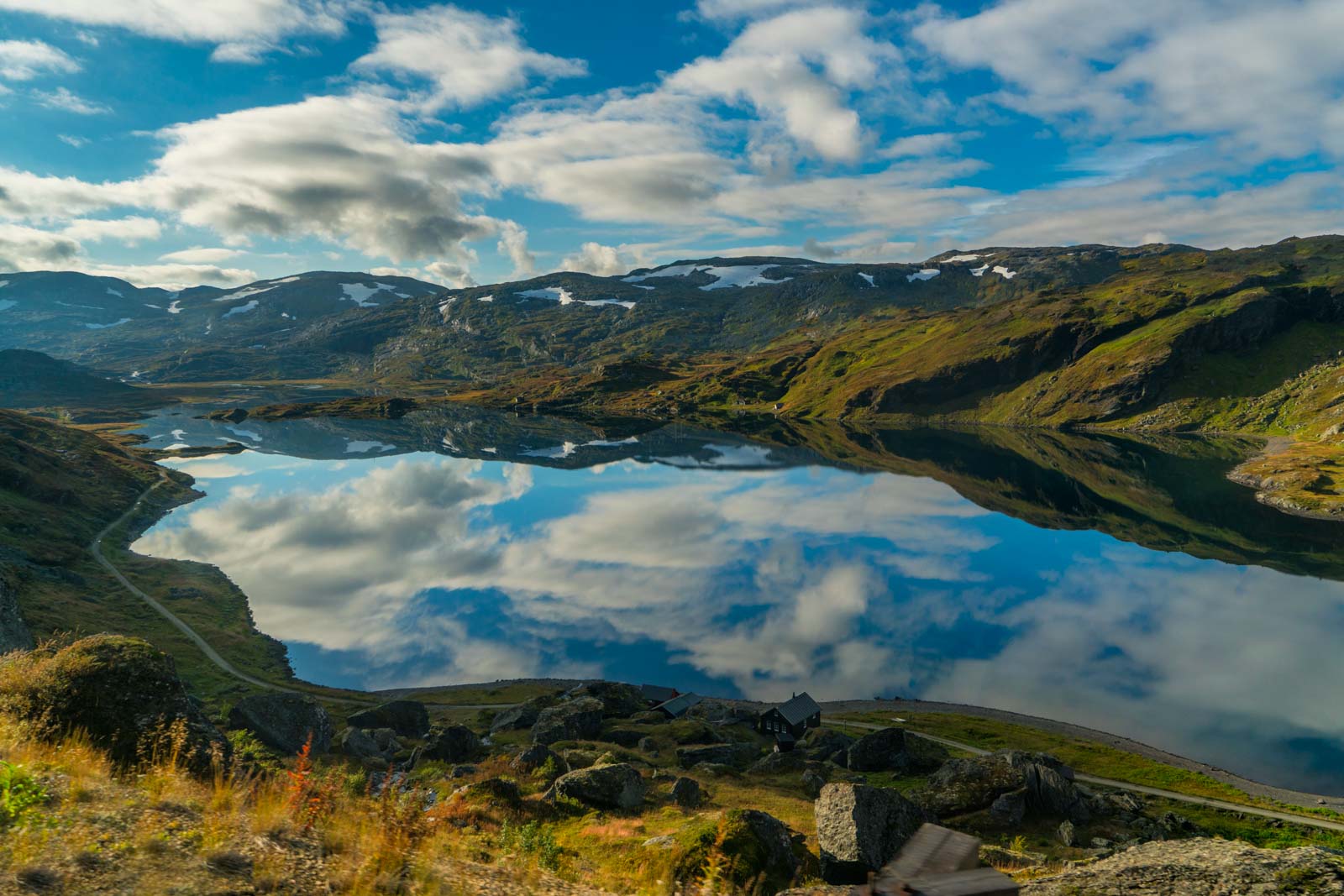

Yes, it is pretty expensive to visit Norway. It’s up there with Switzerland and Iceland as one of the most expensive countries in Europe, but that doesn’t mean that traveling on a tighter budget in Norway is impossible. What it does mean is that you’ll spend as much on a week in Norway as you would on two weeks in Italy, and it’s up to you to decide whether a trip to Scandinavia is worth it.
I personally think it is worth every single penny, even if you have to make certain sacrifices to be able to afford it. Maybe it’s slumming it down in a “cheap” hotel or cooking at your accommodation instead of eating out. The one thing you shouldn’t skimp on is activities because they’re by far the best thing about any trip.
Cost of Accommodation
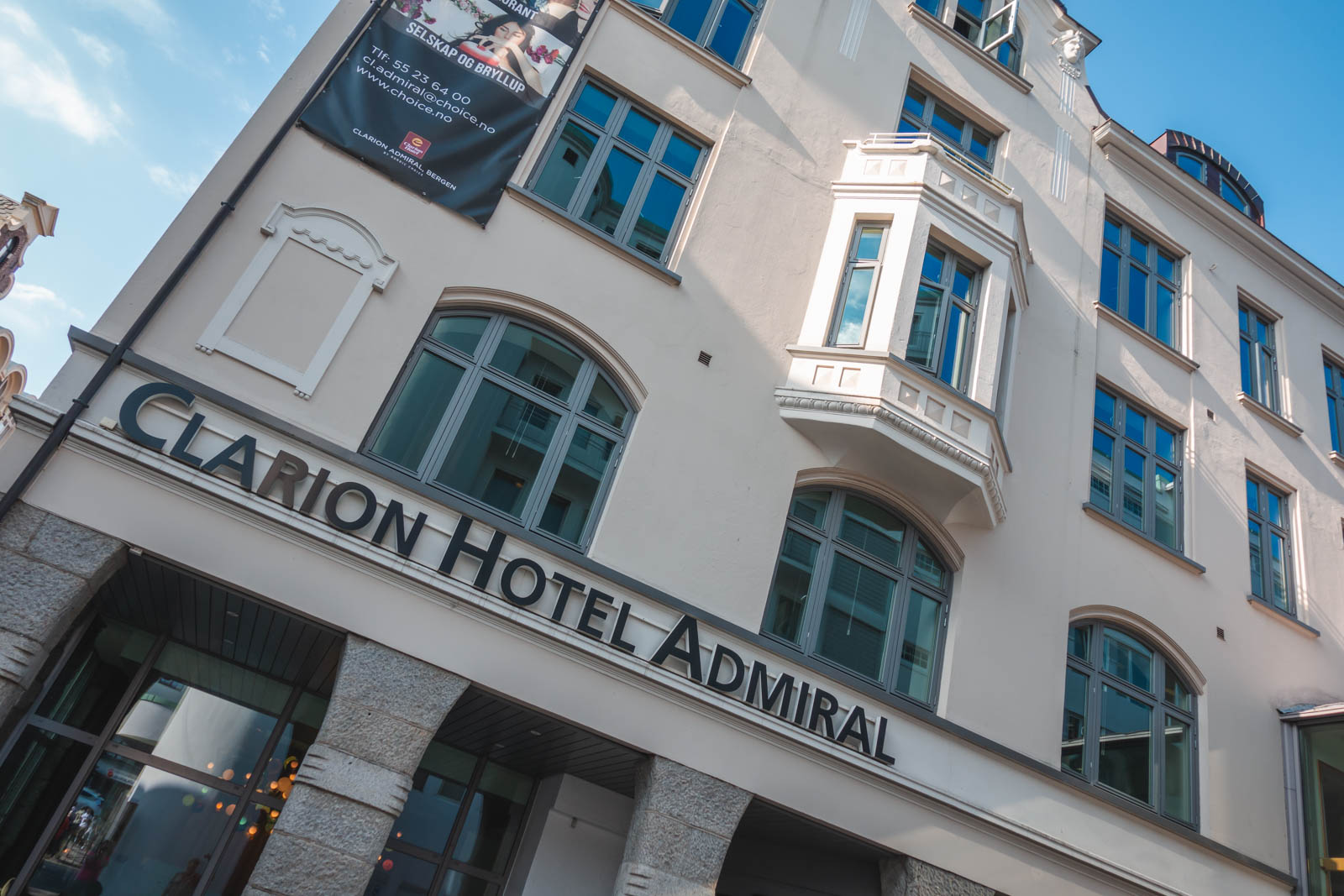

The bulk of your budget for Norway will go towards accommodation. Hotels in Norway are expensive, and although there are many ways to save money on accommodation, it is by far the most expensive part of the trip.
The main thing to consider is where you want to stay in Norway. Staying in Oslo is more expensive than staying in a small town a 20-minute ride from the capital. Smaller towns and villages are generally cheaper for hotel stays than the bigger cities, and Oslo, Trondheim, and Bergen are the three most expensive cities in the country. Tromso is also high up there because it’s a very popular destination for northern lights sightings, and can be even more expensive than Oslo in high season.
Another thing to consider is the location of your accommodation within a city. A hotel smack dab in the middle of the city center will be significantly more expensive than one on the outskirts. Radisson RED Oslo Økern offers double rooms for $200 per night far from the city center, while a bed in a dormitory in the heart of Oslo will set you back $75 for a nightly stay.
It is worth noting that you could technically camp your way through Norway without spending a penny. The country has something called “Everyman’s Right,” which essentially allows anyone to camp outdoors as long as they’re far enough from private property. If you want to explore nature in Norway and you’re no stranger to tent life, this is a top option for staying a while in Norway without overspending on hotel rooms.
Finally, it’s necessary also to point out that private accommodation is very popular in Norway. The country’s most popular tourist destinations have surprisingly few five-star hotels but are not lacking in the area of high-end villas and luxury apartments. Norway is the ideal destination for a countryside escape in a sprawling villa with massive floor-to-ceiling windows.
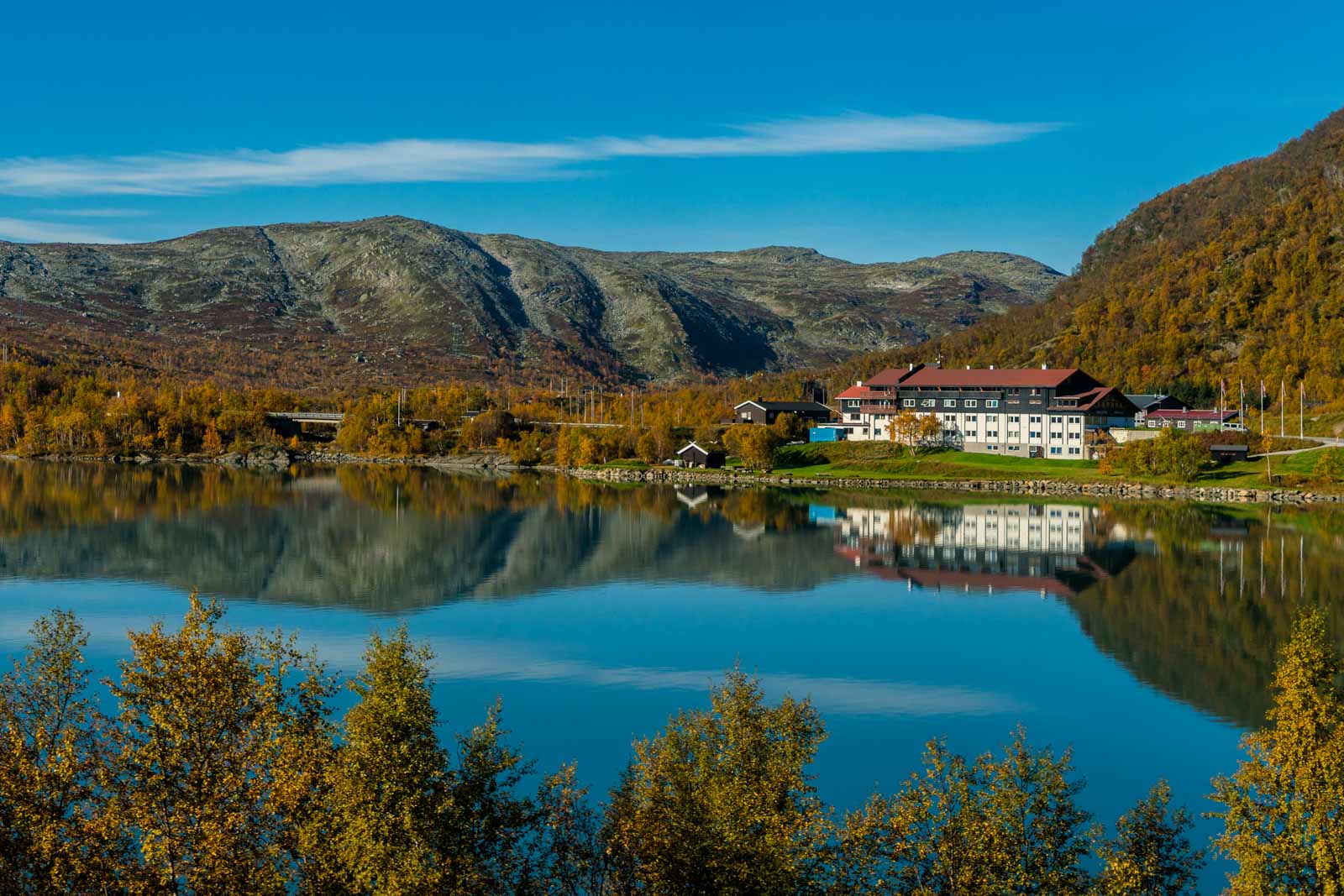

Budget:
Budget accommodation options in Norway include couchsurfing, hostels, budget hotels, campsites, and private rooms in apartments. The cheapest hostels I’ve found in Oslo cost around $50 per night, while the average cost of budget accommodation is $70-100 per night. That’s $300-600 for a week trip to Norway.
Mid-Range:
Mid-range accommodation in Oslo is in the $100-250 per person price range for a night’s stay. Homes and apartments are usually $200-400 for two people, while double rooms are $250-500 per night in Oslo city center. But choose to stay outside Oslo city center or in one of the smaller towns or villages, and you’ll be able to book double rooms at mid-range hotels for $150-250 per night. That’s a weekly budget of $600-1,000 per person.
Luxury:
Luxury hotels in Norway are moderately priced compared to their budget and mid-range counterparts. There aren’t actually that many five-star hotels in Norway, and even in Oslo, you can book a night for two in the city’s best hotels for $300. Fancier hotels in the capital are $500-700 per night, and five-star hotels outside Oslo are usually $300-400 per night. Overall, $1,500 per person should be enough for a week in a luxury hotel in Norway.
Cost of Transportation
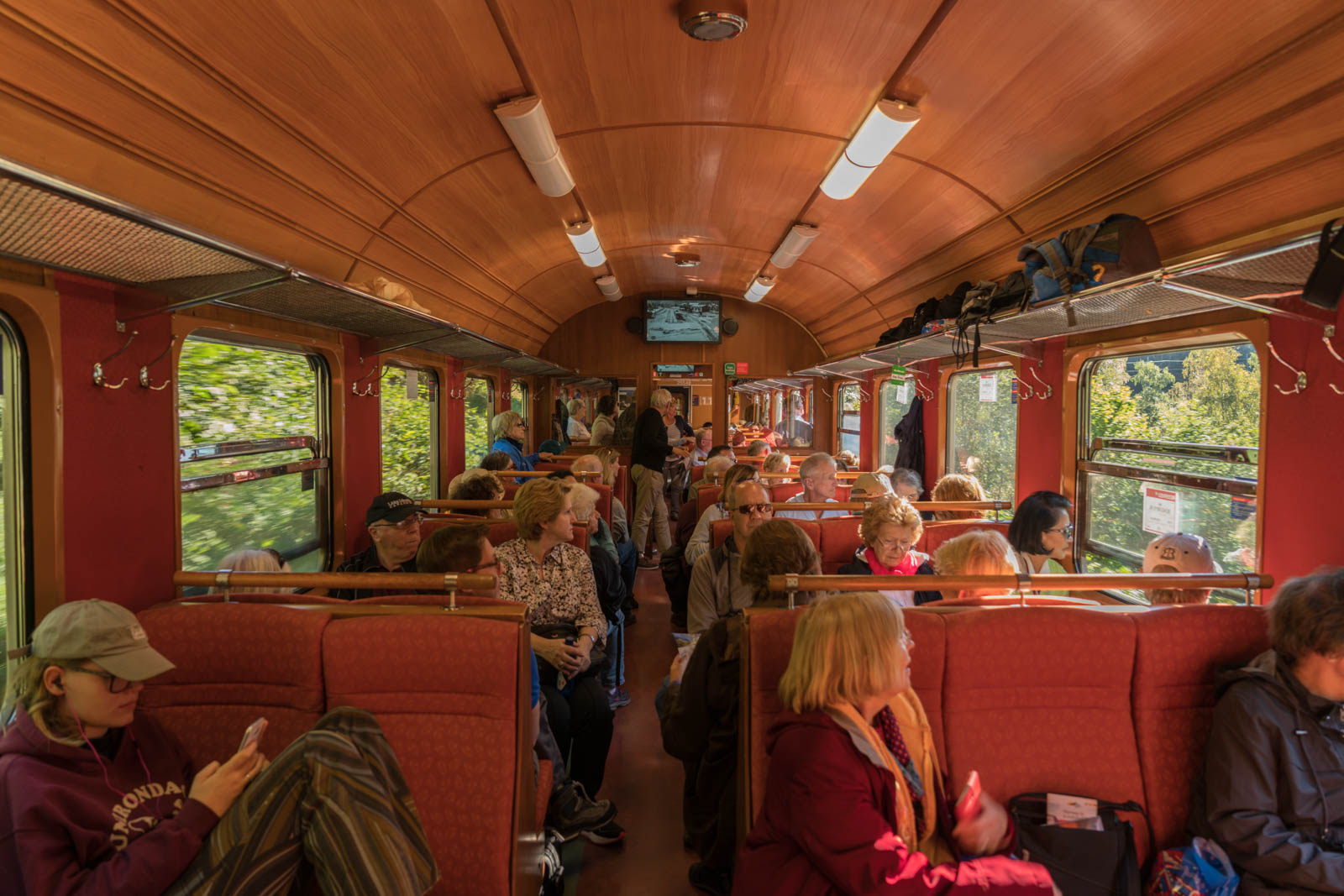

You’ve got tons of options for getting around Norway – car rental, taxis, buses, trains, boats, and even planes. Trains are generally a good option for traveling between cities in the south; they’re cheaper than buses for some reason and a bit faster. An express train can take you from the main Oslo airport to the city center in just 20 minutes, and the tickets are around $22.
But you can’t get everywhere by train. It works best for traveling in the south of the country, especially if you’re departing from Oslo. Many train journeys in Norway are very scenic, so the ride isn’t just about getting from point A to point B but also about enjoying the sights along the way.
However, train rides in Norway generally take a really long time. It’s roughly eight hours to travel from Oslo to Bergen, Trondheim, or Stavanger, all of which are around 500 kilometers away from the capital, give or take 50 kilometers. Don’t even get me started on Tromso; the Arctic Circle city is more than 1,700 kilometers away from the capital, and it would take you more than 24 hours to complete the journey by land.
All of that’s to say that flying is the fastest and often the cheapest solution of traveling in Norway. Domestic flights are surprisingly inexpensive, and a quick 50-minute flight from Oslo to Bergen can be booked for as little as $60. That’s only $10 more than the cheapest train that travels for at least 7 hours.
Flying is the only viable option for trips to cities far in the north – Bodo, Tromso, Kirkenes, Hammerfest, etc. The transportation costs are affordable, not to mention that you can save more than 24 hours if you fly as opposed to trying to travel by land.
To get around the cities, you can easily allocate a budget of zero. The cities in Norway are very walkable, and you can get around on foot, even in Oslo. I recommend avoiding taxis because the prices are exorbitant and the public transportation network is good enough to get you quickly to where you need to be. Keep in mind that you’ll rarely need to travel more than 10-15 minutes at a time between different areas of one city.
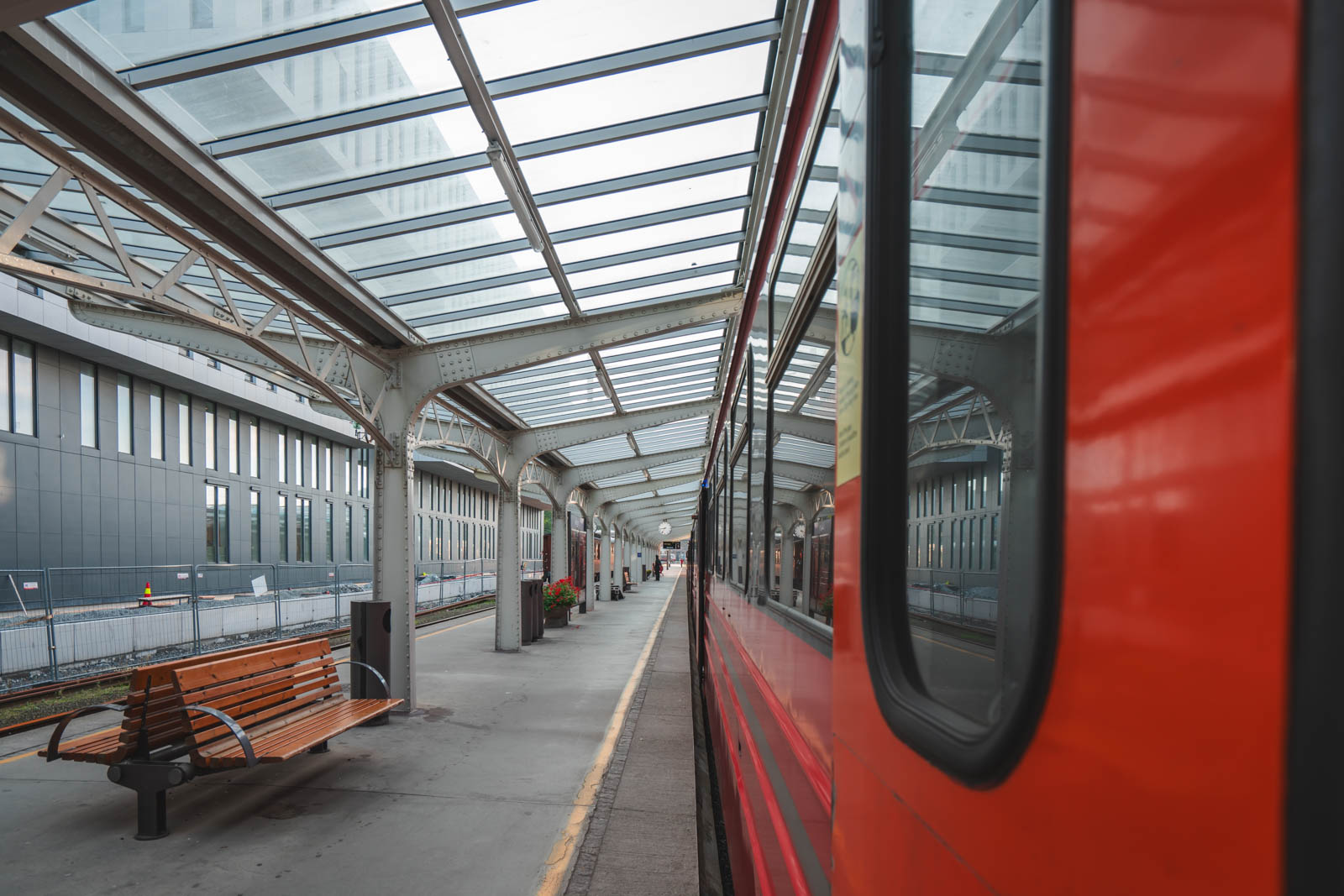

Planning Ahead
Saving money on local transportation in Norway is as simple as planning ahead. Train tickets are significantly cheaper if you buy them in advance, and sometimes you can pay a third of their standard cost. The same goes for plane tickets, which are necessary to reach cities in the far north.
Oftentimes, you can get discounts when you book multiple experiences at the same time, like a train ride followed by a fjord cruise. Also, it’s usually cheaper to ride the night trains than travel by day, plus it means you don’t have to pay for a hotel room for that night.
Budget For Transportation
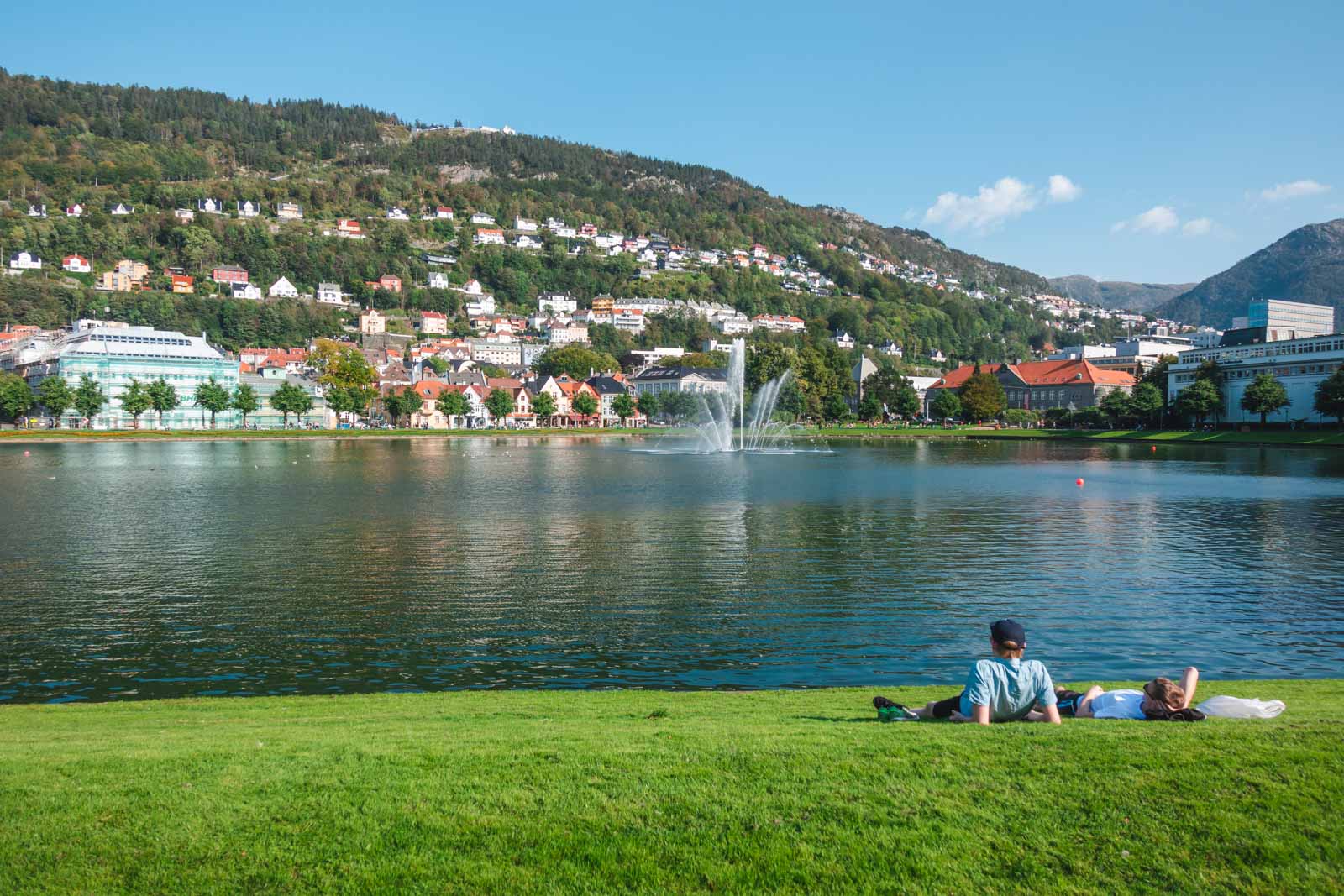

So, how much should you budget for transportation in Norway? It mostly depends on two things – how many day trips you plan to take and how long you’re staying in the country. If you’re heading to Norway for five days and you don’t plan to leave Oslo the entire time you’re there, then your transportation budget might as well be zero because you can walk everywhere.
I don’t think that’s realistic, so let’s say it’s one excursion every 3 days, which means two-day trips in a week and four in two weeks. Budget roughly $150 for transportation per week, including the train to and from the airport and a couple of day trips. Travelers who intend on riding Uber, arranging airport transfers, and prefer to purchase first-class train tickets should allocate a budget of $300-400 for transportation in Norway.
Obviously, this doesn’t cover the cost of the flight to Norway, which can be anywhere from $38 for a Ryanair flight from London to Oslo up to $750 for flights from Houston. The average cost of flights from the US to Norway is $600, but only $150 for flights from other cities in Europe.
Cost of Food
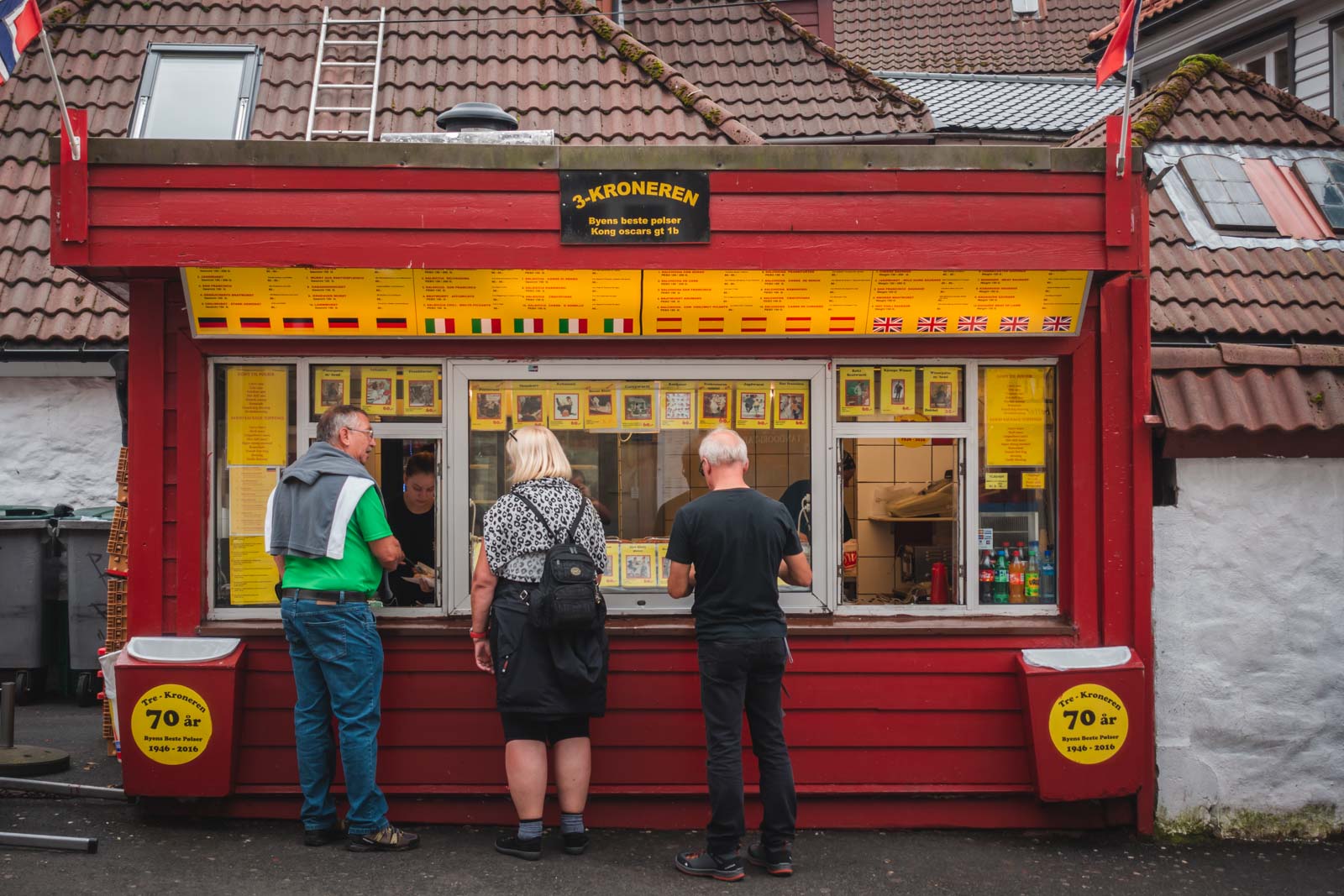

Eating out is pricey in Norway, but not so expensive that you need to rule it out entirely if you’re traveling on a tighter budget. The bigger cities have an advantage here because they offer a wider selection of restaurants in different price ranges. From McDonalds to Michelin-starred restaurants, the options are endless.
One important thing to note is that you’ll need to forego drinking alcohol if you want to keep your food budget manageable. Cocktails, wine, and even beer are all very expensive in Norway, with an average price of $10 for a glass of wine or a small draught beer.
Budget travelers will likely try to cook most of their own meals and stick to fast food when eating out. Burritos, doners, and sandwiches are some of the cheapest foods to eat, plus you can buy all sorts of frozen and cooked Norweigan foods at the supermarket to eat at your accommodation. Up to $15 per meal is the standard for budget eateries in Norway, and you can find places to eat for under $10 per person, even in the heart of Oslo.
Mid-range restaurants are plentiful in Norway and have an average cost of $15-40 for main dishes. Naturally, meat-based dishes will be more expensive than just pasta or pizza, but let’s say that you can get a really nice meal for $20-25 in most mid-range restaurants in Oslo, which is one of the pricier cities.
For fine dining in Norway, the sky is the limit. There are loads of expensive and luxury restaurants in all the bigger cities, where you can easily spend more than $1,000 for dinner if you get the right bottle of wine.
Save Money On Food In Norway
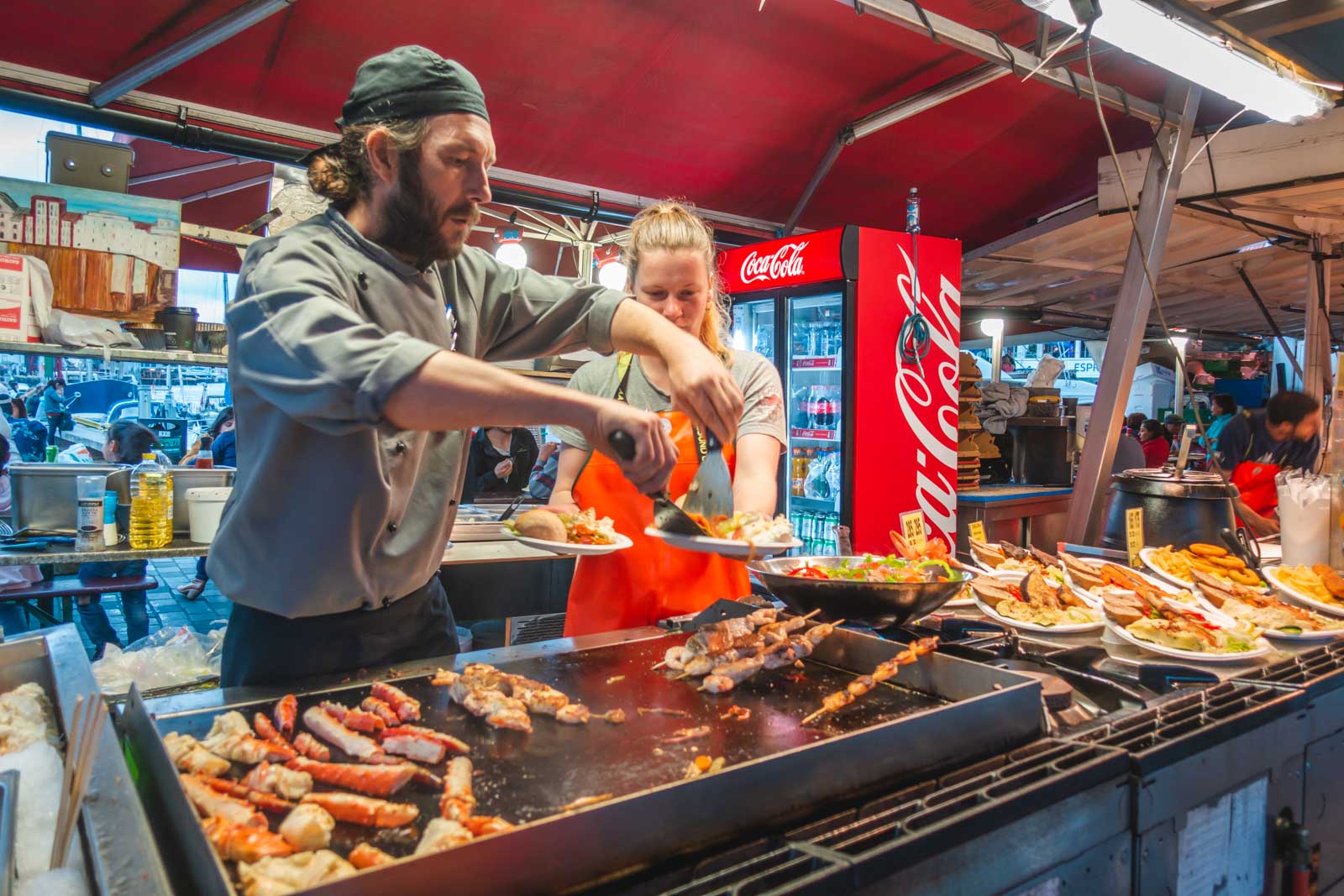

A budget for food in Norway can be anywhere from $10 per day up to $150 per day. I highly recommend paying extra for hotel breakfast because it’s a great way to keep the food costs down. That leaves just lunch and dinner – if the breakfast buffet is generous enough, you might even be able to skip lunch. But that’s the mid-range category since many budget accommodation options don’t include breakfast.
Budget travelers will likely stick to grocery shops and prepare their meals in the accommodation. Hostels and private apartments usually include kitchen facilities you can use, and you can easily stay full with a budget of as small as $10 per day, so around $60 for a week of groceries.
What I have in mind here is some pasta, sauce, eggs, sandwich bread, luncheon meat, chicken, and a frozen meal or two. You can even squeeze a couple of beers into that budget. I went ahead and checked out the prices at Norwegian supermarkets, and for $6 Euros, you can get 500 grams of pasta and a Barilla pasta sauce, which makes five meals. Spring an extra $3 for grated Grana Padano, and that’s actually a decent meal.
Mid-range travelers might eat out 3-4 times a week and should budget roughly $25 per meal (without drinks). Combined with a grocery shop, that’s roughly $140 for a week’s worth of food in Norway. Keep in mind that the grocery store budget decreases when you eat out a few times.
A budget for a luxury traveler is easily at least 100 Euros per day for food, even more if you eat out for every single meal and you choose more expensive restaurants. Of course, it depends on many factors, but in general, budget around $15 for breakfast, $20-30 for lunch, and $40-50 per dinner. On the lower end, that’s roughly $550 for a week’s worth of food in Norway, not including drinks.
Cost of Activities
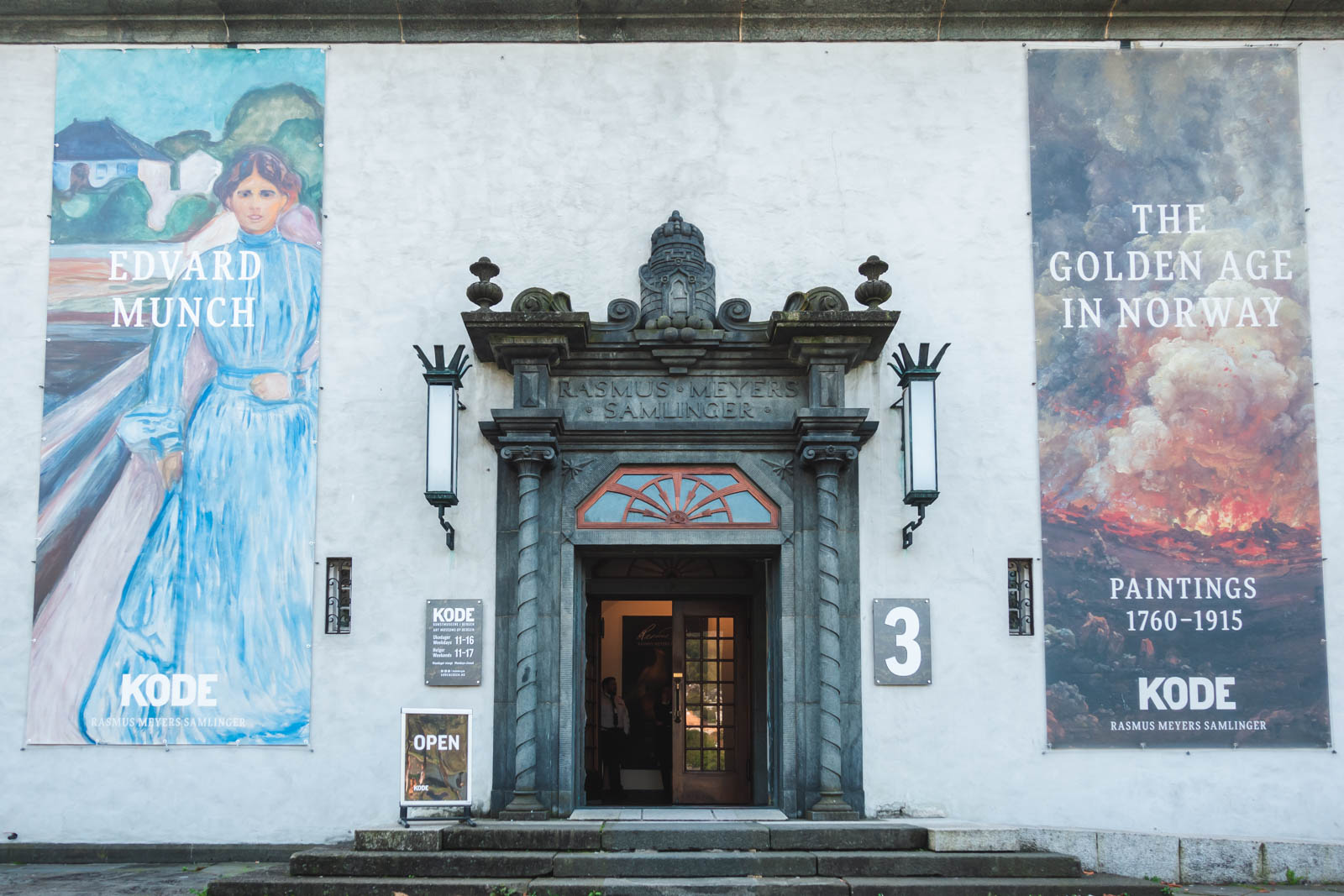

The activities are by far the best thing about any trip to Norway and are deserving of the largest part of your budget. If you have to skimp on hotels and meals to be able to afford the activities, it is absolutely worth doing so. The good news is that Norway offers many free attractions, including hikes, museums, parks, and more.
Also, there’s an overlap between activities and other aspects of the budget. The Flam Railway is one of the most scenic train rides in the world and a top tourist attraction in Norway, so you can split the cost between the budget for activities and transportation. It’s roughly $60 for the two-hour train ride, not including any possible deals and discounts.
Museums are usually $10-25, depending on their size, and there are loads of free museums throughout the country, especially in Oslo. Entrance to famous landmarks is often free, while the ones that require a paid entrance usually cost $10-15.
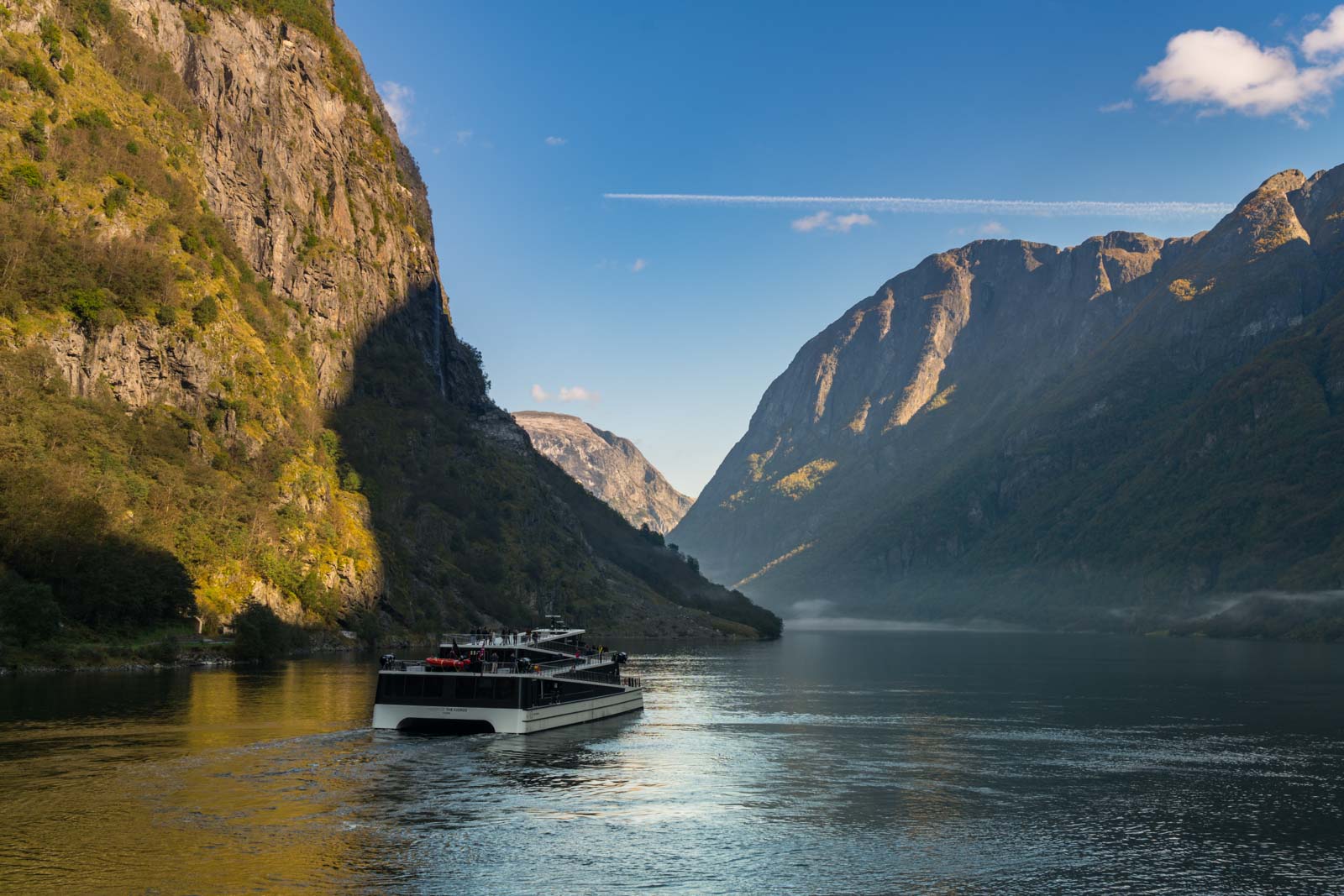

As for the bucket list experiences, if you’re going to splurge for one thing, make it a Northern Lights chase. It’s one of the best things to do in Norway and such a fantastic experience that it’s worth planning your entire trip around it. The average cost of a guided Northern Lights excursion is $150 per person, not including the flight to Tromso.
A fjord cruise is another one-of-a-kind experience to be had in Norway and totally worth the splurge. It’s usually $45-85, depending on the duration. Fjord cruises are available in all waterfront cities in Norway but are the most popular in Bergen and Tromso.
Additionally, Norway is famous for its excellent hiking trails, some of which are known all over the world. Pulpit Rock and Trolltunga are two of the best hiking destinations in the country, and you can hike to both for free. Of course, you can also choose to visit either destination with a guide; this is a good idea if you’re worried about how to reach the trailhead by public transportation, but it will cost anywhere from $50 to $150 for a day’s worth of hiking.
Budget travelers can easily enjoy Norway just by exploring the free activities. I’d allocate a budget of $10-20 per day for activities such as museums and national landmarks or to do just one bucket list experience for the duration of your stay.
For mid-range travelers, a budget of $35-60 per day is enough for a bucket-list experience and a couple of paid attractions daily, plus as many free things as you want. And for travelers who want to engage in a once-in-a-lifeting activity every day, a budget of $80-120 per day should suffice.
A Budget For 1 Week in Norway
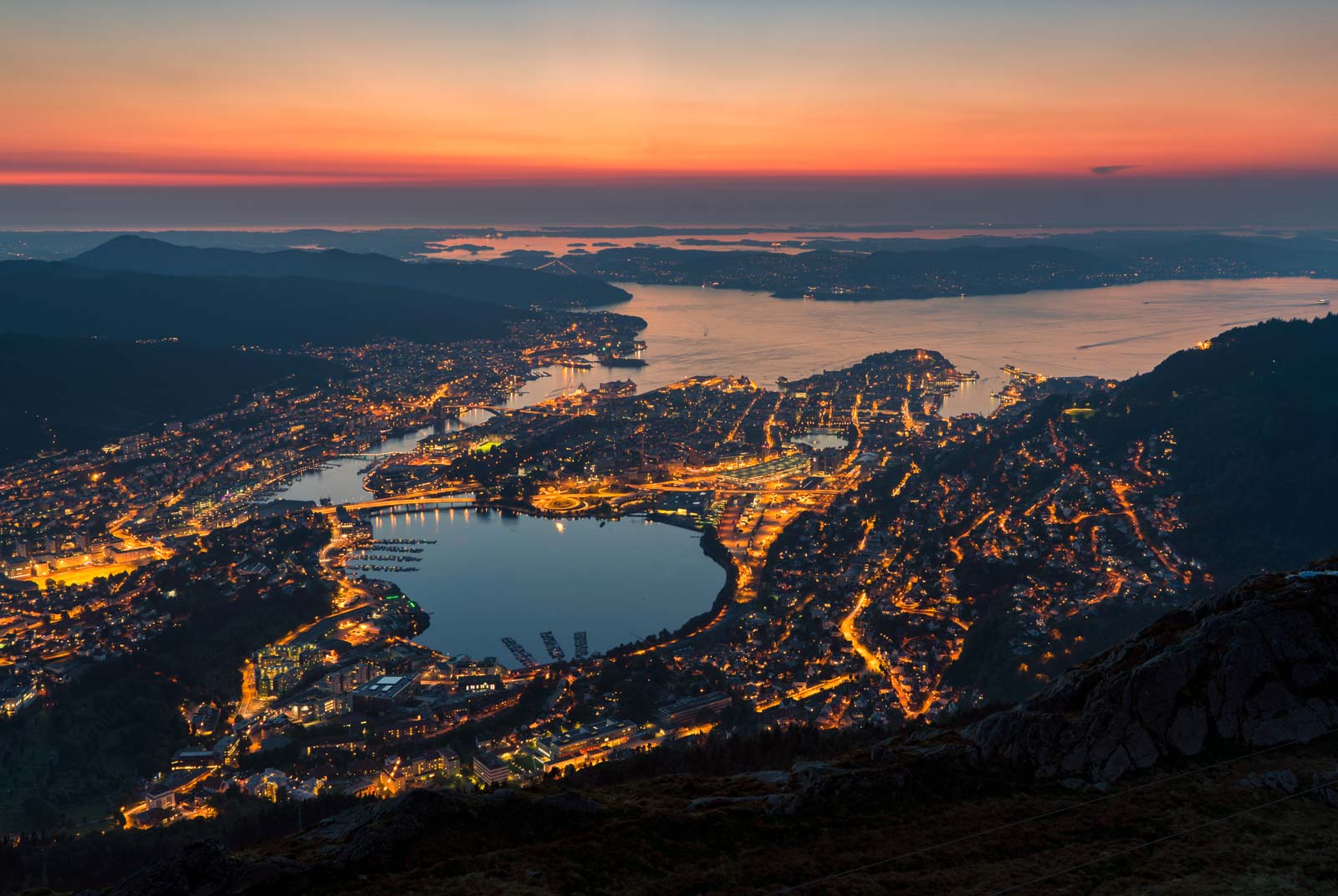

So, what’s the budget for a week in Norway? Here’s an example of a lower-end mid-range budget for a week’s stay in Norway:
- $150 for transportation
- $400 for hotel
- $150 for food and drinks
- $100-200 for activities
- $150-600 for flights (Europe/USA)
The total budget for a week in Norway is $1,500 for travelers flying from the United States, and $1,000 for those coming from Europe. Obviously, it’s much more expensive for Americans to visit Norway, and it will be worth it to wait for deals on plane tickets in the off-season. Without flights, it comes out to a budget of $120 per day.
Also, keep in mind that this is just an example of what you could spend on a trip to Norway. Camp outdoors instead of paying for a hotel, and you can easily save $400 on accommodation. But eat out three times per day and enjoy a glass of wine with both lunch and dinner, and your budget for food can seep into the triple digits.
A Budget For 2 Weeks in Norway
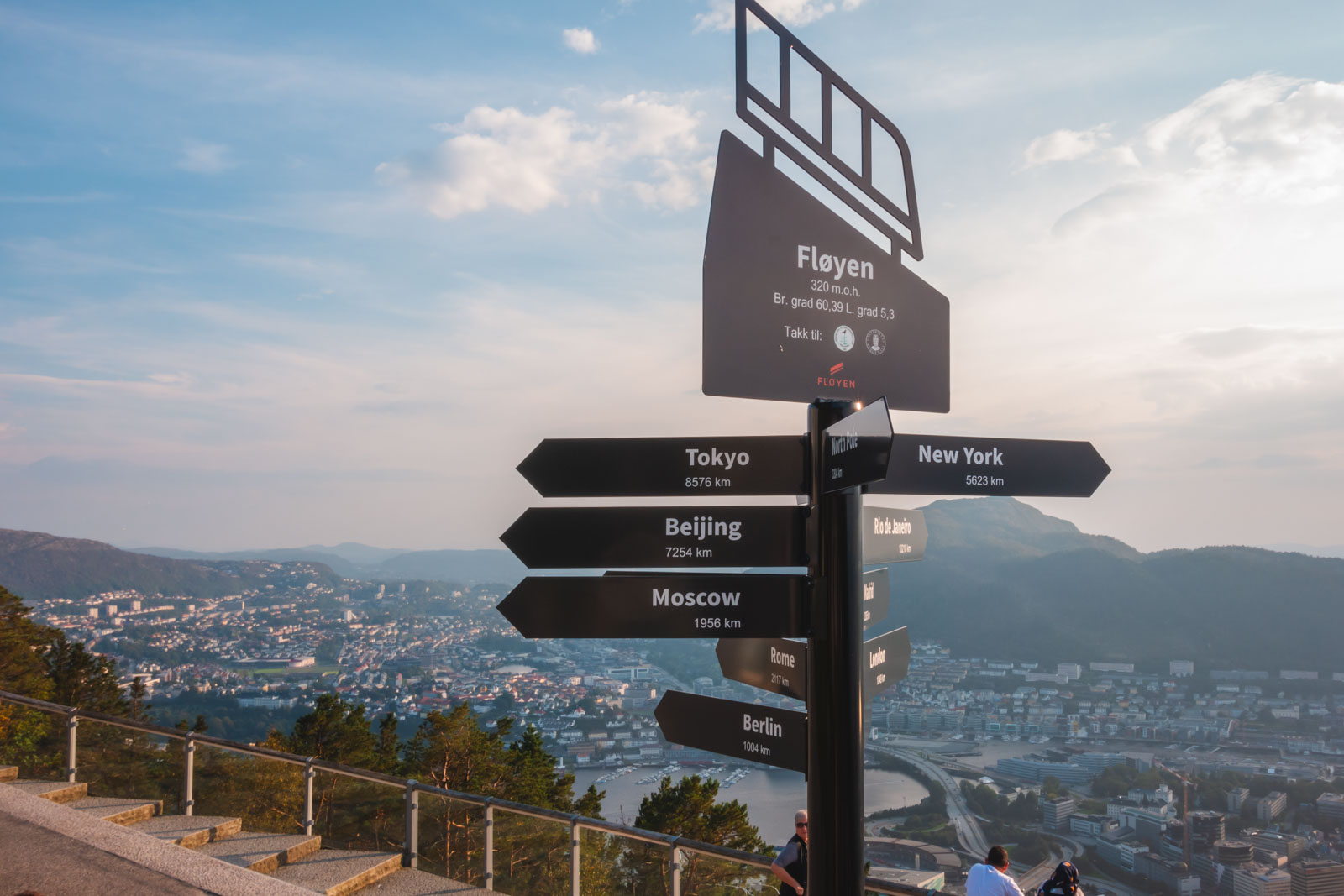

The budget for two weeks in Norway is generally just double the weekly budget:
- $300 for transportation
- $800-1,5000 for hotel room
- $350 for food and drinks
- $200-400 for activities
- $150-600 for flights (Europe/US)
This is just an estimate of what you could spend, and notice I’ve allocated a slightly larger budget for food to cover drinks. Also, the accommodation budget is based on the prices of mid-range hotels in Oslo and it’s possible to save a lot of money by staying in more affordable hotels, riding the night train, or just staying in a smaller town.
But in general, expect to pay around $120 per day for a trip to Norway, and up to $160 per day if you’re flying out of the United States.
Is Norway Expensive? FAQs
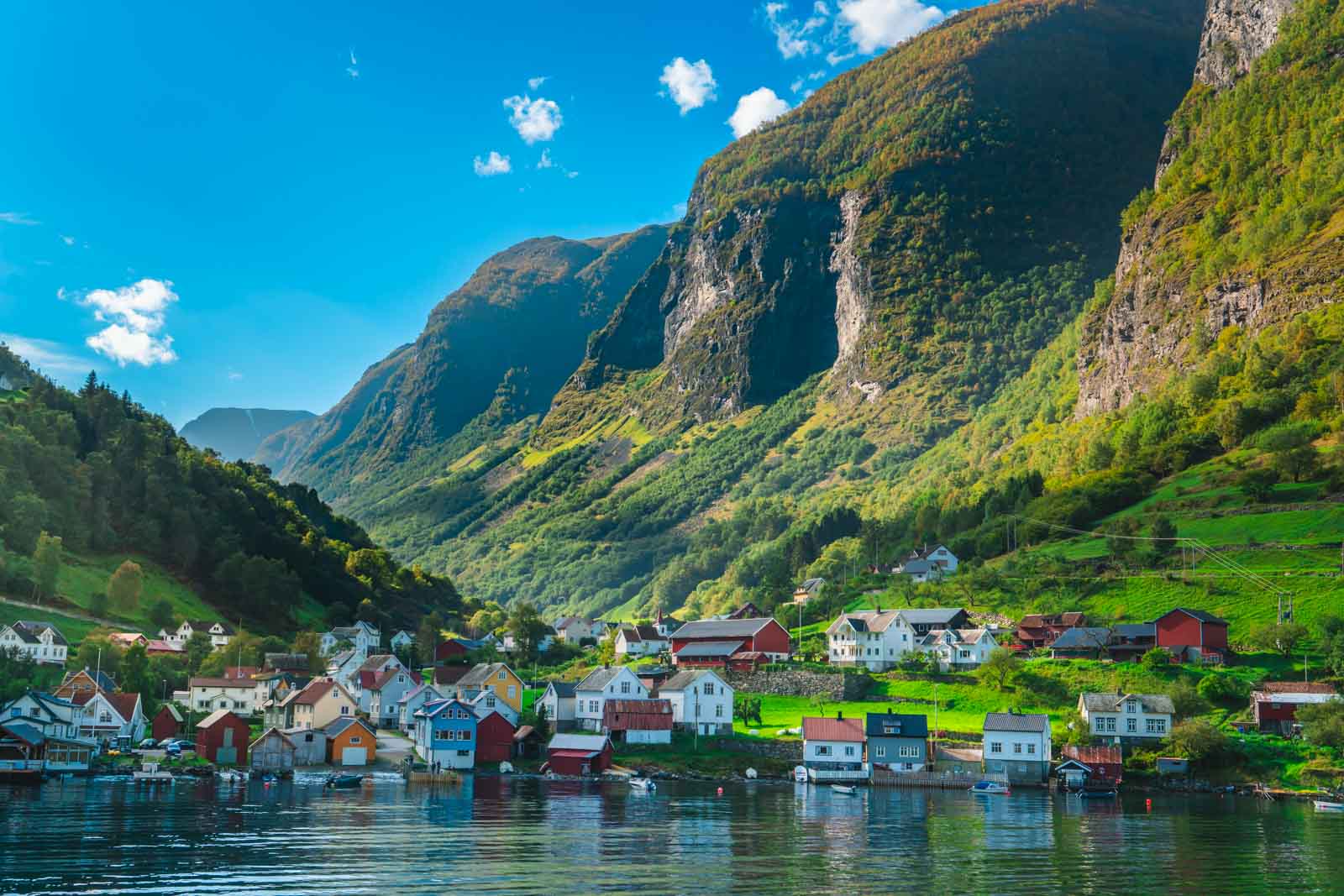

May is the cheapest month to visit Norway. Flights and hotels are still very affordable, the crowds are still small, and the weather is nice and sunny.
The average cost of a meal in a mid-range restaurant in Norway is $15-20. Eating out is generally expensive in Norway.
Yes, Norway is an expensive country, even for Americans. Flying to Norway from the US is about four times as expensive as flying out from Europe.
Yes, you can visit Norway on a budget. It might not be the best country in Europe for travelers on a tight budget, but if you plan ahead, shop for groceries, and don’t mind sharing a bathroom, you can have a great time in the country without breaking the bank.
What To Budget When Visiting Norway?


So, what should you budget for a Norway trip for a week?
- Budget Travelers: $300 per week if you mostly camp outdoors and stay in hostels, buy groceries, don’t spend money on activities, and spend very little on transportation
- Mid-Range Travelers: $1,000-1,500, depending on where you’re coming from and how much you spend on flights
- Luxury Travelers: $2,500+ will allow you to really live it up in Scandinavia
